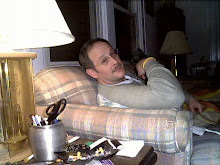"A mass of legend and literature, which increases and will never end, has repeated and rung the changes on that single paradox; that the hands that had made the sun and stars were too small to reach the huge heads of the cattle. Upon this paradox, we might almost say upon this jest, all the literature of our faith is founded. It is at least like a jest in this, that it is something which the scientific critic cannot see. He laboriously explains the difficulty which we have always defiantly and almost derisively exaggerated; and mildly condemns as improbable something that we have almost madly exalted as incredible; as something that would be much too good to be true, except that it is true. When that contrast between the cosmic creation and the little local infancy has been repeated, reiterated, underlined, emphasised, exulted in, sung, shouted, roared, not to say howled, in a hundred thousand hymns, carols, rhymes, rituals, pictures, poems, and popular sermons, it may be suggested that we hardly need a higher critic to draw our attention to something a little odd about it...It is no more inevitable to connect God with an infant than to connect gravitation with a kitten."
This paragraph form the chapter "The God in the Cave" begins Chesterton's reflection of the Nativity of Christ in his Masterpiece The Everlasting Man. If you have never read it, you should. Then, you should read it again.
I had never really given it much thought before I read Chesterton, but the bit about the hands of God being too small to reach the cattle just floors me. That God entrusted Himself as man to the care of the created, that He deliberately became vulnerable to all those things which threaten and endanger a child is really a concept that I have a hard time getting my head around. Other religions had myths regarding the birth of gods; other mythologies even had the idea that a god could become a man, but none had a God-Child born of a human mother and dependent on her as all babes do. As Chesterton expounds further on "When a well-known critic says, for instance, that Christ being born in a rocky cavern is like Mithras having sprung alive out of a rock, it sounds like a parody upon comparative religion. There is such a thing as the point of a story, even if it is a story in the sense of a lie. And the notion of a hero appearing, like Pallas from the brain of Zeus, mature and without a mother, is obviously the very opposite of the idea of a god being born like an ordinary baby and entirely dependent on a mother. Whichever ideal we might prefer, we should surely see that they are contrary ideals."
Wow! Just wow!
Merry Christmas and God bless you all!
Until next time, all the best. Joe
My new blog: The Radical Life
12 years ago

No comments:
Post a Comment